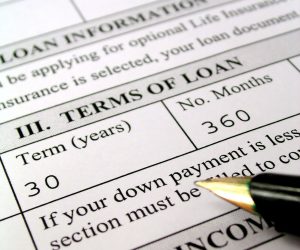27 May Getting a mortgage if you are self employed, casual or at a new job

When you don’t meet traditional lending criteria you may think that you don’t have a chance of getting a loan but that’s not the case at all. Just because you’re self employed or have started a new job doesn’t mean you won’t quality for finance. It just means that you will need to meet a different set of criteria, so to help you out, we’ve created a list of the ways that you can get a home loan if you are self employed, working casually, or have just started a new job.
Loans for the self employed
This is possibly the most important thing to do if you’re self employed and want to take out a mortgage. You need to keep up to date financial records. Most lenders will ask for records of 3-6 months when you’re just taking out a regular loan, but when you’re applying for a mortgage they’ll expect you to supply more evidence that you have the income to support the loan. It’s recommended that you keep financial records for at least 6 months, and you will need to prove that you’ve been in the industry for at least 12 months. If you do not have long term records, then although you may be able to get a mortgage, you may be subjected to a higher interest rate or other strict terms that other borrowers might not have. You may also need to provide records relating to the stability of the business, especially if you’re a sole trader.
When you’re self employed, you’ll need to save a higher deposit than those who are employed in the traditional workforce. Some lenders will only lend up to 80% of the home value, although this will vary from lender to lender. It’s worth talking to a mortgage broker about your options and what the best course of action will be, for your particular situation.
When you take out a home loan if you’re self employed, you should calculate your budget. Those who are self employed will have extra expenses such as Lenders’ Mortgage Insurance, so you’ll need to factor these into your budget before you take out the loan.
Loans for casual employees
Although it would seem as if casual employees may pose a risk to lenders, they are actually open to approving loans for those in the casual workforce. The regulations are more relaxed than for the self employed, with you being able to borrow up to 90% of the property’s value. That increases to 95% if you have a guarantor on the loan.
You will need to prove that even though you are a casual employee your income is stable. That means providing pay slips for at least a month if you’re a casual employee with regular hours and three months worth of pay slips if the hours vary.
Lenders are hesitant about lending to applicants whose income may suddenly disappear, so it’s essential that you can prove there is some sort of stability in your employment situation.
Your credit rating will be taken into consideration as well, so the better your rating, the easier it will be for you to get a loan.
Loans if you’ve just started a new job
Similar to the requirements for casual employees, you’ll need to have been in the job for at least a month. You will need to supply the lender with evidence that you have a stable income and can make the repayments.
Typically, banks will be hesitant to lend to anyone who has been in a job for less than six months, however other lenders are more willing. Those situations will be assessed on a case by case basis.
If you have any questions about your personal situation then contact us, and one of our friendly team members will provide you with all the information you need.


No Comments